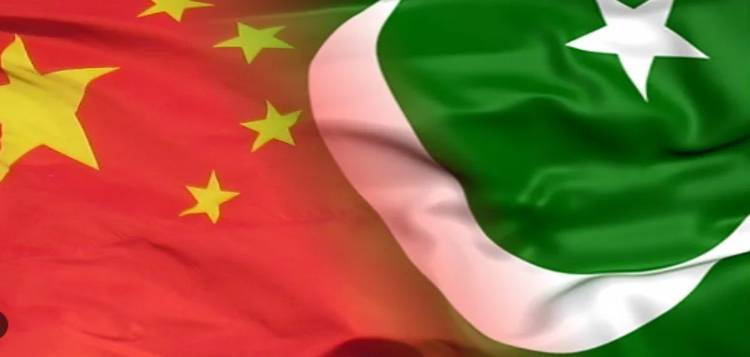
China has allowed the rollover of $2 billion State Administration of Foreign Exchange (SAFE) deposits for a year, reported The News on Friday.
Minister for Finance and Economic Affairs Ishaq Dar answered the publication's question on receiving the rollover of $2 billion in SAFE deposits with a "yes."
The rollover of Chinese SAFE deposits was one of the conditions imposed by the IMF in order to meet the country's need for external financing and move closer to the long-awaited staff-level agreement.
The Memorandum of Economic and Financial Policy (MEFP) has nine tables that must be completed.
One of the tables deals with Net International Reserves (NIR) as an indicative target that cannot be met without taking into account the external financing requirements of the program period through the end of June 2023.
The IMF's request that Pakistan fills the $6 billion deficit is only an effort to maintain its credibility. If the plan does not come to fruition, Pakistan may be forced to declare bankruptcy.
The fact that members of Gulf nations on the Executive Board had committed to giving Islamabad financial support in a variety of ways before the acceptance of the seventh and eighth evaluations obliged the Fund to make this demand during negotiations. They comprised further investments and deposits.
All eyes are now on the UAE, Qatar, and the Kingdom of Saudi Arabia (KSA) to save Pakistan's faltering economy.
The IMF has warned Islamabad that failing to secure Pakistan's commitment from its bilateral partners after the staff-level agreement is finalized could result in the country going into default and jeopardizing its credibility.
The IMF is investigating the factors that are preventing Pakistan's bilateral partners from fulfilling their prior commitments. In these circumstances, Islamabad can only benefit from the support of Saudi Arabia, the UAE, and Qatar in negotiating a staff-level accord.
By keeping its promises to refinance its commercial debts and roll over its SAFE deposits, only China had stepped forward to save Islamabad.
Minister for Finance and Economic Affairs Ishaq Dar answered the publication's question on receiving the rollover of $2 billion in SAFE deposits with a "yes."
The rollover of Chinese SAFE deposits was one of the conditions imposed by the IMF in order to meet the country's need for external financing and move closer to the long-awaited staff-level agreement.
The Memorandum of Economic and Financial Policy (MEFP) has nine tables that must be completed.
One of the tables deals with Net International Reserves (NIR) as an indicative target that cannot be met without taking into account the external financing requirements of the program period through the end of June 2023.
The IMF's request that Pakistan fills the $6 billion deficit is only an effort to maintain its credibility. If the plan does not come to fruition, Pakistan may be forced to declare bankruptcy.
The fact that members of Gulf nations on the Executive Board had committed to giving Islamabad financial support in a variety of ways before the acceptance of the seventh and eighth evaluations obliged the Fund to make this demand during negotiations. They comprised further investments and deposits.
All eyes are now on the UAE, Qatar, and the Kingdom of Saudi Arabia (KSA) to save Pakistan's faltering economy.
The IMF has warned Islamabad that failing to secure Pakistan's commitment from its bilateral partners after the staff-level agreement is finalized could result in the country going into default and jeopardizing its credibility.
The IMF is investigating the factors that are preventing Pakistan's bilateral partners from fulfilling their prior commitments. In these circumstances, Islamabad can only benefit from the support of Saudi Arabia, the UAE, and Qatar in negotiating a staff-level accord.
By keeping its promises to refinance its commercial debts and roll over its SAFE deposits, only China had stepped forward to save Islamabad.

